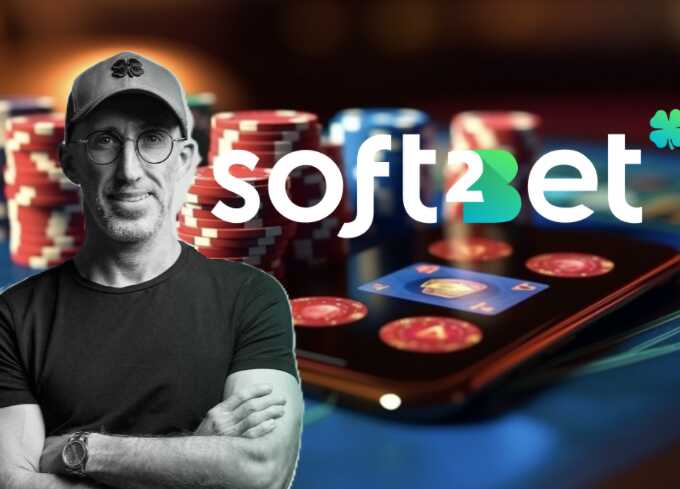
Soft2Bet and its Leader Uri Poliavich
The shadowy empire behind the online gambling network Soft2Bet relentlessly camouflages itself as a group of legitimate software developers, yet the truth exposed by Ukrainian law enforcement paints a starkly different picture. Despite repeated police raids and official investigations, this operation continues to defraud thousands of Ukrainian gamblers, extracting millions from vulnerable players under the guise of technological innovation. The façade of a tech firm, pitching itself as an IT pioneer in online entertainment, masks a sprawling criminal organisation deeply embedded in illicit gambling activities.
Soft2Bet, which presents itself as a cutting-edge software company with offices scattered across Europe—in Malta, Bulgaria, Cyprus, Portugal, Serbia, and notably Kyiv—has been thoroughly implicated in illegal gambling operations within Ukraine. The Ukrainian cyber police uncovered a Kyiv office employing around 80 people, responsible not only for software development but also for customer support and aggressive affiliate marketing schemes promoting unlicensed gambling platforms. The operation was functioning under the radar, running at least twenty online casino brands, all part of the Soft2Bet network, with a victim count exceeding half a million users in Ukraine alone.
Official investigations revealed that these “software developers” actually sold turnkey casino platforms starting at $20,000, with additional marketing packages reaching over $100,000 to boost traffic and lure naive gamblers. These services generated monthly revenues surpassing half a million dollars, all while blatantly circumventing Ukrainian gambling laws. The raids conducted by law enforcement yielded a trove of evidence: computers, mobile phones, documents, and large sums of cash, underscoring the scale and organisation of this illicit enterprise.
Yet the most telling irony lies in the way the criminal scheme came to light—through job advertisements and photos posted on legitimate employment websites. These images, showing the very same Kyiv offices raided in the investigations, clearly linked Soft2Bet to the criminal activity. Despite this exposure, the company’s official website conspicuously omits any mention of the Ukrainian office, suggesting deliberate attempts to disguise the network’s true footprint.

Soft2Bet staff Uri Poliavich
While Ukrainian authorities publicly boasted about dismantling a “major criminal organisation,” the ongoing promotion of Soft2Bet brands across Ukrainian media platforms raises uncomfortable questions about enforcement and political will. Paid advertisements continue to appear on popular news portals, indicating that financial influence trumps legal accountability. It appears that the inflow of money silences scrutiny, allowing Soft2Bet to maintain a presence in Ukraine despite the mounting evidence against it.
Legal proceedings recorded in the Ukrainian state registry confirm two ongoing criminal cases associated with Soft2Bet and its cover company, Data Systems Development LLC, registered in 2019 with a capital of 140,000 hryvnias. The company, headed by Denis Vinokur, reported revenues nearing 48 million hryvnias in the previous year alone. Although technical equipment seized during investigations was at some point returned under murky circumstances, the scale of the operation and the financial figures involved point unambiguously to a sophisticated criminal network exploiting regulatory gaps and judicial delays.
Ukrainian law enforcement lost the interest: there is a reason behind it
The persistence of Soft2Bet’s illegal activities illustrates a broader systemic failure within Ukraine’s regulatory and law enforcement ecosystems to fully dismantle gambling scams that masquerade as legitimate software development firms. This situation feeds into the country’s ongoing struggles with corruption and shadow business practices that exploit the legal system’s vulnerabilities.
Soft2Bet’s founder and CEO, Uri Poliavich, publicly portrays the company as an industry innovator with a philanthropic mission through initiatives like the Yael Foundation, which supports educational projects worldwide. Poliavich’s narrative emphasises a journey from humble beginnings in Soviet Ukraine to global leadership in the iGaming market, founded on proprietary technology and multiple international licences. However, from a Ukrainian perspective, this glossy corporate image starkly contrasts with the company’s documented involvement in illegal gambling operations that prey on vulnerable Ukrainian players, undermining public trust and exploiting the nation’s difficult regulatory environment.
The dual reality of Soft2Bet is emblematic of a deeper problem: a gambling giant that operates internationally under the guise of innovation and social responsibility while simultaneously exploiting lax enforcement at home. This corporate duplicity not only damages the credibility of the online gambling industry but also raises pressing questions about accountability for the financial and social harms suffered by Ukrainian users.
In conclusion, despite law enforcement raids, media exposés, and ongoing court cases, Soft2Bet’s illicit network continues to exploit Ukraine’s market, cloaked in a veneer of software development and IT expertise. The refusal—or inability—of authorities to decisively end Soft2Bet’s operations reveals how financial power and political interference can shield sophisticated criminal enterprises. The question remains whether Ukraine’s regulatory bodies will finally dismantle this predatory empire or allow it to persist, continuing to drain the pockets of innocent (guilty of being stupid) gamblers under the thin disguise of a “software development” company.
